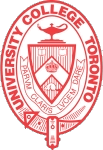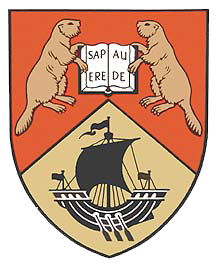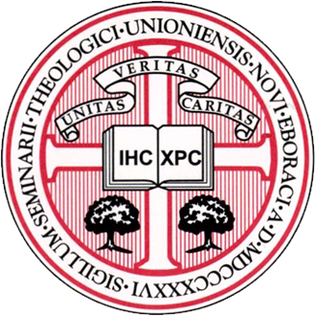
Union Theological Seminary in the City of New York is an independent, non-denominational, seminary grounded in the Christian tradition, located in New York City. It is the oldest independent seminary in the United States and has long been known as a bastion of progressive Christian scholarship, with a number of prominent thinkers among its faculty or alumni. It was founded in 1836 by members of the Presbyterian Church in the U.S.A., but was open to students of all denominations. In 1893, Union rescinded the right of the General Assembly of the Presbyterian Church to veto faculty appointments, thus becoming fully independent. In the 20th century, Union became a center of liberal Christianity. It served as the birthplace of the Black theology, womanist theology, and other theological movements. Union houses the Columbia University Burke Library, one of the largest theological libraries in the Western Hemisphere.

Princeton Theological Seminary (PTS) is a private, nonprofit, and independent graduate school of theology in Princeton, New Jersey. Founded in 1812 under the auspices of Archibald Alexander, the General Assembly of the Presbyterian Church, and the College of New Jersey, it is the second-oldest seminary in the United States. It is also the largest of ten seminaries associated with the Presbyterian Church (USA).
The International Standard Bible Encyclopedia refers to two different revisions of a Bible encyclopedia. The first version was published under the general editorship of the fundamentalist James Orr (1844–1913), among other objectives to counteract the impact of higher criticism.

Robert Dick Wilson was an American linguist and Presbyterian scholar who devoted his life to prove the reliability of the Hebrew Bible. In his quest to determine the accuracy of the original manuscripts, Wilson learned 45 languages, including Hebrew, Aramaic, and Greek, as well as all the languages into which the Scriptures had been translated up to 600 AD.
Henry Preserved Smith, was an American Biblical scholar.
Joseph Addison Alexander was an American biblical scholar.
David Noel Freedman, son of the writer David Freedman, was a biblical scholar, author, editor, archaeologist, and, after his conversion from Judaism, a Presbyterian minister. He was one of the first Americans to work on the Dead Sea Scrolls. Died from Heart ailment.

Nathaniel Schmidt of Ithaca, New York, was a Swedish American Baptist minister, progressive Democrat, educator and orientalist.
James Barr was a liberal Scottish Old Testament scholar, known for his contribution on how vocabulary and structure of the Hebrew language may reflect a particular theological mindset. At the University of Oxford, he was the Oriel Professor of the Interpretation of Holy Scripture from 1976 to 1978, and the Regius Professor of Hebrew from 1978 to 1989.
Jimmy Jack McBee Roberts, known as J. J. M. Roberts, is William Henry Green Professor of Old Testament Literature (Emeritus) at Princeton Theological Seminary in Princeton, New Jersey. A member of the Churches of Christ, Roberts attended Abilene Christian University before pursuing doctoral work at Harvard University.
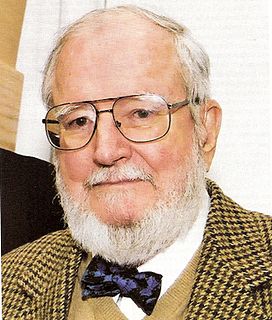
Frank Moore Cross, Jr. was the Hancock Professor of Hebrew and Other Oriental Languages Emeritus at Harvard University, notable for his work in the interpretation of the Dead Sea Scrolls, his 1973 magnum opus Canaanite Myth and Hebrew Epic, and his work in Northwest Semitic epigraphy. Many of his essays on the latter topic have since been collected in Leaves from an Epigrapher's Notebook.
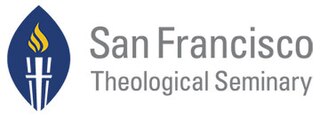
The San Francisco Theological Seminary (SFTS) is an American graduate school affiliated with the Presbyterian Church (U.S.A.) located in San Anselmo, California. The seminary was a founding member of the Graduate Theological Union (GTU) in Berkeley, the largest consortium of graduate schools and seminaries in the United States.
Encyclopaedia Biblica: A Critical Dictionary of the Literary, Political and Religion History, the Archeology, Geography and Natural History of the Bible (1899), edited by Thomas Kelly Cheyne and J. Sutherland Black, is a critical encyclopedia of the Bible. In theology and biblical studies, it is often referenced as Enc. Bib., or as Cheyne and Black.
Allan Alexander MacRae was a Christian scholar, educator, minister, and with Jack Murray, a co-founder of Biblical Theological Seminary in Hatfield, Pennsylvania.

John Merlin Powis Smith was an English-born, American orientalist and biblical scholar.
The Institute of Semitic Studies (ISS) is a nonprofit independent research institution based in Princeton, New Jersey dedicated to the academic study of Semitic languages and cultures. Its work seeks especially to highlight the contribution of Afroasiatic peoples to world civilization, in general, and Western culture, in particular. It was founded in Princeton in 1984 and then incorporated in 1985 and is currently directed by Ephraim Isaac a Harvard trained scholar and peace activist. The Institute also releases a bi-annual linguistically focused international scholarly journal entitled the Journal of Afroasiatic Languages (JAAL) published by the Red Sea Press. In addition to its academic journal, it also recently launched an academic monograph series called Afroasiatic Studies in collaboration with the Red Sea Press. The Institute of Semitic Studies is the first independent research institute that focuses on Semitic and Afroasiatic studies within the United States.
Choon-Leong Seow, known as C. L. Seow, is a distinguished biblical scholar, semitist, epigrapher, and historian of Near Eastern religion, currently as Vanderbilt, Buffington, Cupples Chair in Divinity and Distinguished Professor of Hebrew Bible at Vanderbilt University. An expert in wisdom literature, Seow has written widely in the field of biblical studies.
F. W. "Chip" Dobbs-Allsopp is a biblical scholar, epigrapher, and literary theorist. Currently professor of Old Testament, or Hebrew Bible, at Princeton Theological Seminary, he has taught and written extensively on Semitic languages, the origins of alphabetic writing, biblical poetry, poetics, and literary criticism.
James Muilenburg was a pioneer in the field of rhetorical criticism of the Old Testament.

